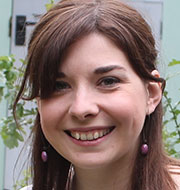 Overstretched and underfunded, these are commonly cited challenges for healthcare—and ones that are difficult to overcome. My Dad used to talk to me about the “zone of proximity,” and I’m old enough now to admit that he was right, so I’m going to focus here on what those of us on the frontline can control. At the Risky Business Tea Party (an event that was part of the Risky Business London conference) earlier this month every table independently raised staff morale and burnout as their single biggest concern.
Overstretched and underfunded, these are commonly cited challenges for healthcare—and ones that are difficult to overcome. My Dad used to talk to me about the “zone of proximity,” and I’m old enough now to admit that he was right, so I’m going to focus here on what those of us on the frontline can control. At the Risky Business Tea Party (an event that was part of the Risky Business London conference) earlier this month every table independently raised staff morale and burnout as their single biggest concern.
The message was loud and clear: a priority for patient care is to start caring about ourselves and one another.
Throughout the conference impressive and inspirational speakers from all backgrounds—sporting, military, and industry—spoke of the importance of teamwork and morale. The need to invest in building teams was paramount: selecting the right people, finding common purpose, knowing the styles and nuances of the people you work with. I was enthralled, yet, something was holding me back. I realised that in the clinical setting I couldn’t fully recognise this “team”—yes, I’ve worked in many fantastic departments and with many brilliant people, but my “team” changes at an alarming rate. I’m rarely on a shift with the same colleagues twice. Instead, short term teams are often formed in A&E resus, on ward rounds, and in multidisciplinary team meetings, where they meet and break up with a frequency that is dizzying even to the most acrimonious of celebrity couples. Most importantly, the core member of the team I belong to, the patient, constantly changes.
I could look to the wider team of course, the department or the Trust I work in, and adopt their values or seek shared goals—but this is a shifting structure too. Junior doctors move frequently in training and the average length in role for a hospital CEO is less than two years at one organisation. The broader NHS is not exactly stable election to election either. So while we can admire our Olympians, pilots, and military, with their well formed and consistent teams, we cannot hope to mimic them. We need to be inspired by them to become the best team we can be in the circumstances we are required to operate in.
To do that each of us needs to be able to bring the best versions of ourselves to work as regularly as possible. We are taught to place so much value on the idea of the team that we can forget about the needs of the individual. Suzy Jordache, a medical educator from MPS, said it best: “It’s not a luxury to look after yourself in this role,” it’s a necessity. Basic needs during a shift, like eating and drinking, are not being met. People are dehydrated, hungry, and frequently sleep deprived. It is a personal responsibility to the benefit of patients, and ourselves, that we address this.
Are we actually being negligent if we don’t take a break to eat lunch together, or at all? And are we helping to create the environment we need to work in when we commend our dedicated colleagues who stay late regularly at the expense of their wellbeing? It would be kinder, and safer, to sit down with a sandwich, comment on what’s going well that day, and figure out how to leave on time without guilt. The NHS in England sees over one million patients every 36 hours, how can you look after number 1 000 000 if you can’t look after number one?
Healthcare has an incredibly resilient workforce who deal with extraordinarily rapid change on a daily basis. We are adaptive and creative, but it’s not always easy to see when this is making a difference. Patients are still waiting and care wanting. We can’t be permanently surprised by how big the challenge is, we need to be able to adjust to the norm. We work in such a precarious position that it only takes one person to not be on top form to change the dynamic of an entire team. It’s not enough to simply tell yourself to pull your socks up, and work longer and harder with a smile on your face. We need to invest time in equipping ourselves with the skills to thrive in work. But if we are to succeed, the effort in caring for ourselves must be matched by our organisations and reflected in their policies and pastoral care.
One final thought. Adrian Plunkett, who champions appreciative inquiry through his project Learning from Excellence, presents a compelling case for recognising the good work going on in our services. While incident reports may be used to highlight when things go wrong, Plunkett argues that allowing people to also give positive feedback helps us learn the habits of excellent practice. It also has a positive effect on team morale.
So let us all learn how to rest, not just burn out. Let us develop the tools we need to keep ourselves and those around us in good health. And as we are learning, let us remember to congratulate ourselves when we get it right. It happens more often than some might think.
Emma Parish is a speciality trainee in paediatrics and current education fellow.
Competing interests: I am a member of the Royal College of Paediatrics and Child Health and was a previous editorial registrar at The BMJ. I was funded to attend the conference by Great Ormond Street Hospital NHS Trust.
